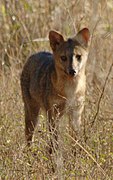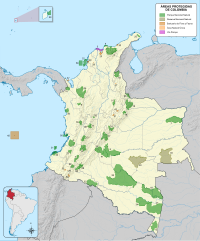Los Estoraques Unique Natural Area
Geography
The climate is warm and predominantly dry. The average temperature is 22 °C and the average yearly rainfall is 870 mm, with a dry season from January to March. The evapotranspiration is twice that of precipitation, causing a water deficit.
There are two types of plant life in the area, a dry forest with species such as Stachytarpheta mutabilis, Psidium guineense, Erythroxylum lucidum and Dodonaea viscosa and a sub-Andean forest covered in fog most time of the year with species such as Andean oak and horse-chestnut.
The fauna of the region is rich in species, many of them endemic and represented only by small populations which indicates a fragile ecosystem. Birds are the most numerous group of vertebrates, with 58 species in 50 different genus and 22 families. Hunting, deforestation, the introduction of agriculture and domestic animals have limited the number of species and number of individuals per species. Mammals found in the area include the tapeti, jaguarundi, crab-eating fox, and common opossum.
Fauna
References
- ^ "Área Natural Única Los Estoraques" (in Spanish). Parques Nacionales Naturales de Colombia. Archived from the original on 7 July 2011. Retrieved 10 July 2010.
- ^ Villegas & Sesana 2007, p. 285
- ^ Villegas & Sesana 2007, p. 287
- ^ "Naturaleza y Ciencia del Área Natural Única Los Estoraques" (in Spanish). Parques Nacionales Naturales de Colombia. Archived from the original on 7 July 2011. Retrieved 10 July 2010.
Bibliography
- Villegas, Benjamin; Sesana, Laura (2007), Colombia Natural Parks, Villegas Asociados, ISBN 978-958-8156-87-3.
External links
 Media related to Área Natural Única Los Estoraques at Wikimedia Commons
Media related to Área Natural Única Los Estoraques at Wikimedia Commons- (in Spanish) The park's page at Parques Nacionales Naturales de Colombia






